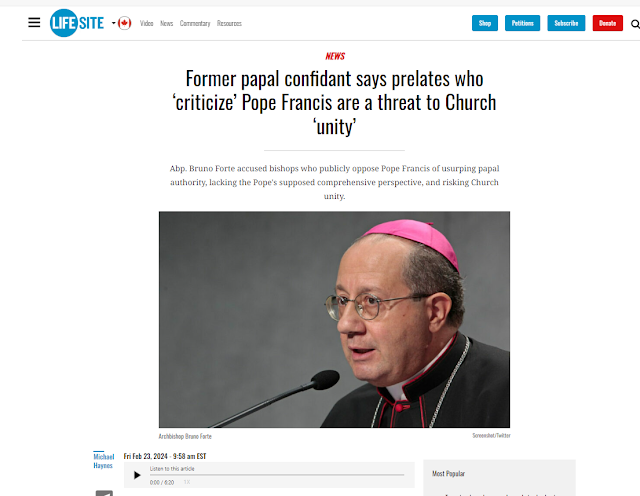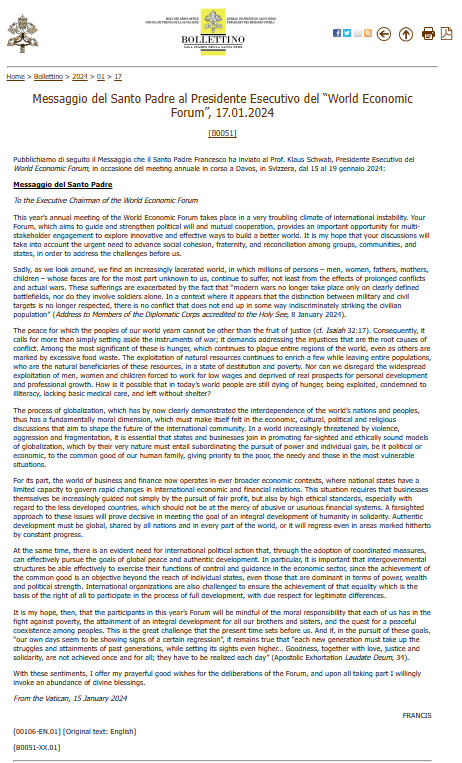Blessing
of Candles
V.
The Lord be with you.
R.
And with thy spirit.
Let
us pray. O Holy Lord, Father almighty, everlasting God, who hast created all
things out of nothing, and by Thy command hast caused this liquid to become
perfect wax by the labor of bees: and who, on this day didst fulfill the
petition of the righteous man Simeon: we humbly entreat Thee, that by the
invocation of Thy most holy Name and through the intercession of Blessed Mary
ever Virgin whose feast is today devoutly observed, and by the prayers of all
Thy Saints, Thou wouldst vouchsafe to bless ✠
and sanctify ✠ these candles for the
service of men and for the health of their bodies and souls, whether on land or
on sea: and that Thou wouldst hear from Thy holy heaven, and from the throne of
Thy Majesty the voices of this Thy people, who desire to carry them in their
hands with honor, and to praise Thee with hymns; and wouldst be propitious to
all that call upon Thee, in the unity of the Holy Ghost, God, world without
end.
R.
Amen.
Let
us pray. O almighty and everlasting God, who on this day didst present Thine
only-begotten Son in Thy holy temple to be received in the arms of holy Simeon:
we humbly entreat Thy clemency, that Thou wouldst vouchsafe to bless ✠ and sanctify ✠
and to kindle with the light of Thy heavenly benediction these candles, which
we, Thy servants, desire to receive and to bear lighted in the honor of Thy
Name: that, by offering them to Thee our Lord God, being worthily inflamed with
the holy fire of Thy most sweet charity, we may deserve to be presented in the
holy temple of Thy glory.
Through
the same Jesus Christ, thy Son, Our Lord, Who liveth and reigneth with thee in
the unity of the Holy Ghost, God, world without end.
R.
Amen.
Let
us pray. O Lord Jesus Christ, the true Light who enlightenest every man that
cometh into this world: pour forth Thy blessing ✠
upon these candles, and sanctify ✠
them with the light of Thy grace, and mercifully grant, that as these lights
enkindled with visible fire dispel the darkness of night, so our hearts
illumined by invisible fire, that is, by the splendor of the Holy Spirit, may
be free from the blindness of all vice, that the eye of our mind being
cleansed, we may be able to discern what is pleasing to Thee and profitable to
our salvation; so that after the perilous darkness of this life we may deserve
to attain to neverfailing light: through Thee, O Christ Jesus, Saviour of the
world, who in the perfect Trinity, livest and reignest, God, world without end.
R.
Amen.
Let
us pray. O almighty and everlasting God, who by Thy servant Moses didst command
the purest oil to be prepared for lamps to burn continuously before Thee:
vouchsafe to pour forth the grace of Thy blessing ✠ upon these candles: that they may so afford us
light outwardly that by Thy gift, the gift of Thy Spirit may never be wanting
inwardly to our minds.
Through
Jesus Christ, thy Son our Lord, Who liveth and reigneth with thee, in the unity
of the Holy Ghost, God, world without end.
R.
Amen.
Let
us pray. O Lord Jesus Christ, who appearing on this day among men in the
substance of our flesh, wast presented by Thy parents in the temple: whom the
venerable and aged Simeon, illuminated by the light of Thy Spirit, recognized,
received into his arms, and blessed: mercifully grant that, enlightened and
taught by the grace of the same Holy Ghost, we may truly acknowledge Thee and
faithfully love Thee; Who with God the Father in the unity of the same Holy
Ghost livest and reignest, God, world without end.
R.
Amen.
The
Distribution of Candles
Ant.
A light for the revelation of the Gentiles: and for the glory of Thy people
Israel.
Now
Thou dost dismiss Thy servant, O Lord, according to Thy word in peace.
Ant.
A light for the revelation of the Gentiles: and for the glory of Thy people
Israel.
Because
mine eyes have seen Thy salvation.
Ant.
A light for the revelation of the Gentiles: and for the glory of Thy people
Israel.
Which
Thou hast prepared, before the face of all peoples.
Ant.
A light for the revelation of the Gentiles: and for the glory of Thy people
Israel.
Glory
be to the Father, and to the Son, and to the Holy Ghost.
Ant.
A light for the revelation of the Gentiles: and for the glory of Thy people
Israel.
As
it was in the beginning, is now, and ever shall be, world without end. Amen.
Ant.
A light for the revelation of the Gentiles: and for the glory of Thy people
Israel.
Ant.
Arise, O Lord, help us and deliver us for Thy Name's sake.
We
have heard, O God, with our ears: our fathers have declared to us.
V.
Glory be to the Father, and to the Son, and to the Holy Ghost.
R.
As it was in the beginning, is now, and ever shall be, world without end. Amen.
Ant.
Arise, O Lord, help us and deliver us for Thy Name's sake.
Let
us pray.
We
beseech Thee, O Lord, hearken unto Thy people, and grant that by the light of
Thy grace, we may inwardly attain to those things which Thou grantest us
outwardly to venerate by this yearly observance. Through Christ our Lord.
R.
Amen
The
Procession
V.
Let us go forth in peace.
R.
In the Name of Christ. Amen.
Ant.
Adorn thy bridal-chamber, O Sion, and welcome Christ the King: with loving
embrace greet Mary who is the very gate of heaven; for she bringeth to thee the
glorious King of the new light: remaining ever a Virgin yet she bearest in her
arms the Son begotten before the day-star: even the Child, whom Simeon taking
into his arms, declared to the peoples to be the Lord of life and death, and
the Saviour of the world.
Ant.
Simeon received an answer from the Holy Ghost, that he should not see death
before he had seen the Christ of the Lord; and when they brought the Child into
the temple, he took Him into His arms, and blessed God, and said: Now dost Thou
dismiss Thy servant, O Lord, in peace.
V.
When His parents brought in the Child Jesus, to do for Him according to the
custom of the law, he took Him into His arms.
V.
They offered for Him to the Lord a pair of turtle doves, or two young pigeons:
* As it is written in the Law of the Lord.
V.
After the days of the purification of Mary, according to the law of Moses, were
fulfilled, they carried Jesus to Jerusalem, to present Him to the Lord. * As it
is written in the Law of the Lord.
V.
Glory be to the Father, and to the Son, and to the Holy Ghost.
R.
As it is written in the Law of the Lord.
Followed
by the Mass.
INTROIT
Ps. 47:10-11
We
have received Your kindness, O Lord, within Your temple. As Your name, O God,
is known to the ends of the earth, so also shall Your praise be voiced to the
ends of the earth. Your right hand is just in all things.
Ps.
47:2. Great is the Lord, and worthy of all praise in the city of our God, upon
His holy mountain.
V.
Glory be . . .
COLLECT
Almighty
and Eternal God, we humbly ask that we may be presented to You with purified
souls just as Your only-begotten Son was presented this day in the temple after
He had taken on the substance of our flesh. Through Our Lord . . .
LESSON
Mal. 3:1-4
Thus
says the Lord God: Behold I send my angel, and he shall prepare the way before
my face. And presently the Lord, whom you seek, and the angel of the testament,
whom you desire, shall come to his temple. Behold, he cometh, saith the Lord of
hosts. And who shall be able to think of the day of his coming? and who shall
stand to see him? for he is like a refining fire, and like the fuller's herb:
And he shall sit refining and cleansing the silver, and he shall purify the
sons of Levi, and shall refine them as gold, and as silver, and they shall
offer sacrifices to the Lord in justice. And the sacrifice of Juda and of
Jerusalem shall please the Lord, as in the days of old, and in the ancient
years, says the Lord almighty.
GRADUAL
Ps. 47:10-11, 9
We
have received Your kindness, O Lord, within Your temple. As Your name, O God,
is known to the ends of the earth, so also shall Your praise be voiced to the
ends of the earth.
V.
As we had heard, so we have seen in the city of our God, upon His holy
mountain.
V.
The old man bore the Child, but the Child was the old man's King; Allelúja.
The
candles are held lighted during the Gospel, and from the Sanctus to the
Communion.
GOSPEL
Luke 2:22-32
At
that time, when the days of Mary's purification, according to the law of Moses,
were accomplished, they carried him to Jerusalem, to present him to the Lord:
As it is written in the law of the Lord: "Every male opening the womb
shall be called holy to the Lord": And to offer a sacrifice, according as
it is written in the law of the Lord, "a pair of turtledoves or two young
pigeons"
And
behold there was a man in Jerusalem named Simeon: and this man was just and
devout, waiting for the consolation of Israel. And the Holy Ghost was in him.
And he had received an answer from the Holy Ghost, that he should not see death
before he had seen the Christ of the Lord. And he came by the Spirit into the
temple. And when his parents brought in the child Jesus, to do for him
according to the custom of the law, He also took him into his arms and blessed
God and said, "Now thou dost dismiss thy servant, O Lord, according to thy
word in peace: Because my eyes have seen thy salvation, Which thou hast
prepared before the face of all peoples: A light to the revelation of the
Gentiles and the glory of thy people Israel."
OFFERTORY
ANTIPHON Ps. 44:3
Grace
is poured out upon your lips; therefore God has blessed you forever and for all
ages.
SECRET














